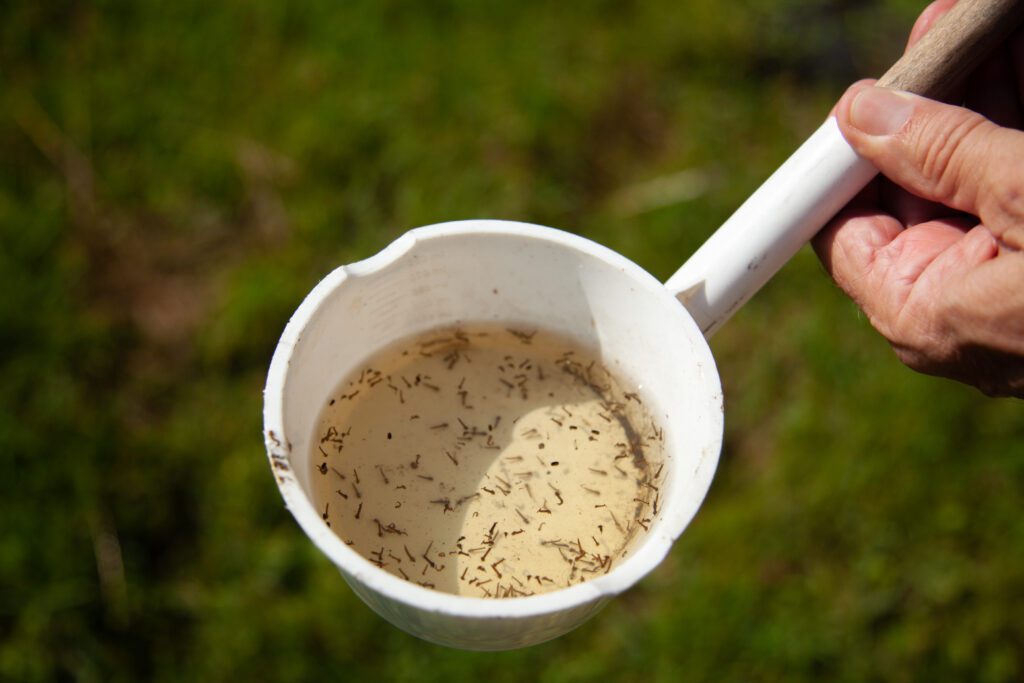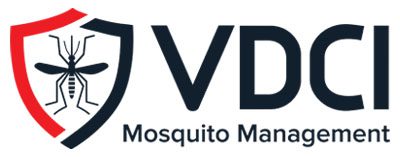Managing Mosquito Larvae with Innovative Trucks
Cities around the globe continue to learn about new control methods that can protect their growing populations from disease-carrying insects.
The emergence of Zika virus in the Americas brought to light many of the challenges facing mosquito control programs and abatement districts throughout the world as well as within the United States. Traditional door-to-door interventions for managing urban mosquitoes such as Aedes aegypti (Yellow Fever mosquito) and Aedes albopictus (Asian Tiger mosquito) have put financial stress on many programs and encouraged investigation into novel or alternate application technologies.
It can prove challenging to supply enough manpower to turn over every flowerpot, remove garbage, and inspect every clogged gutter in densely populated areas. Residential technicians also find limited access to private commercial and individual properties and are challenged to identify or access the small and cryptic breeding grounds utilized by these invasive urban mosquito species. The new public health threat associated with Zika, combined with management obstacles, have forced new thinking on how to control mosquitoes within densely populated areas.

Looking for New Innovative Ways to Control Mosquitoes
The mosquito management industry is frequently looking for new and innovative methodologies for controlling mosquito populations, and the introduction of another mosquito-borne illness to the U.S. is creating a greater focus on the urban environments of the Aedes species previously mentioned. The VDCI team has spent much of this year exploring innovative technologies with the hopes of reducing the manpower necessary for managing mosquito populations in densely populated areas. Truck-based larvicide applications seek to increase the distance that a larvicide can travel, and with the right droplet size we can reach backyard habitats and other areas not easily reached on foot.
How Wide-Area Larviciding Helped Reduce Adult Mosquito Populations
While working with Broward County, Florida last season our team was able to assess the efficacy of Wide-Area Larvicide applications via truck-based application equipment within several areas of South Florida. While these types of applications are still in their infancy, we had the opportunity to characterize droplet density and do larval cup assays during a real life application. Our team was able to collect data with regards to spray penetration and larval mortality at three (3) locations (front, middle, and back) within twelve (12) individual properties.
 The results were impressive. We found an average mortality of 90% across all locations of the tested habitats. Containers at the front and the sides of homes provided the strongest results, showing 100% mortality within 24-hours. Containers behind homes were sometimes more challenging to reach with these droplets as they have to float for just the right amount of time and settle into the cryptic habitat such as old tires or garbage with the potential for holding water. While larval mortality in backyards was not as high as other areas, the knockdown rate was still high enough to reduce the need for hand treatments and door-to-door inspections significantly. These strong results indicate that Wide-Area Larvicide applications via truck-based applications are effective in reaching conspicuous areas throughout residential neighborhoods and should be considered as a valuable and time-saving tool for suppressing urban mosquito populations that present the greatest risk to public health in the current fight against Zika virus as well as several other mosquito-borne diseases.
The results were impressive. We found an average mortality of 90% across all locations of the tested habitats. Containers at the front and the sides of homes provided the strongest results, showing 100% mortality within 24-hours. Containers behind homes were sometimes more challenging to reach with these droplets as they have to float for just the right amount of time and settle into the cryptic habitat such as old tires or garbage with the potential for holding water. While larval mortality in backyards was not as high as other areas, the knockdown rate was still high enough to reduce the need for hand treatments and door-to-door inspections significantly. These strong results indicate that Wide-Area Larvicide applications via truck-based applications are effective in reaching conspicuous areas throughout residential neighborhoods and should be considered as a valuable and time-saving tool for suppressing urban mosquito populations that present the greatest risk to public health in the current fight against Zika virus as well as several other mosquito-borne diseases.
Due to the successful results, our team has continued to work this winter to optimize equipment for Wide-Area Larvicide applications via truck-based equipment for the 2017 mosquito season.
Contact Us to Learn More About Effective Mosquito Prevention Strategies:
 Since 1992, Vector Disease Control International (VDCI) has taken pride in providing municipalities, mosquito abatement districts, industrial sites, planned communities, homeowners associations, and golf courses with the tools they need to run effective mosquito control programs. We are determined to protect the public health of the communities in which we operate. Our mosquito control professionals have over 100 years of combined experience in the field of public health, specifically vector disease control. We strive to provide the most effective and scientifically sound mosquito surveillance and control programs possible based on an Integrated Mosquito Management approach recommended by the American Mosquito Control Association (AMCA) and Centers for Disease Control and Prevention (CDC). VDCI is the only company in the country that can manage all aspects of an integrated mosquito management program, from surveillance to disease testing to aerial application in emergency situations.
Since 1992, Vector Disease Control International (VDCI) has taken pride in providing municipalities, mosquito abatement districts, industrial sites, planned communities, homeowners associations, and golf courses with the tools they need to run effective mosquito control programs. We are determined to protect the public health of the communities in which we operate. Our mosquito control professionals have over 100 years of combined experience in the field of public health, specifically vector disease control. We strive to provide the most effective and scientifically sound mosquito surveillance and control programs possible based on an Integrated Mosquito Management approach recommended by the American Mosquito Control Association (AMCA) and Centers for Disease Control and Prevention (CDC). VDCI is the only company in the country that can manage all aspects of an integrated mosquito management program, from surveillance to disease testing to aerial application in emergency situations.

